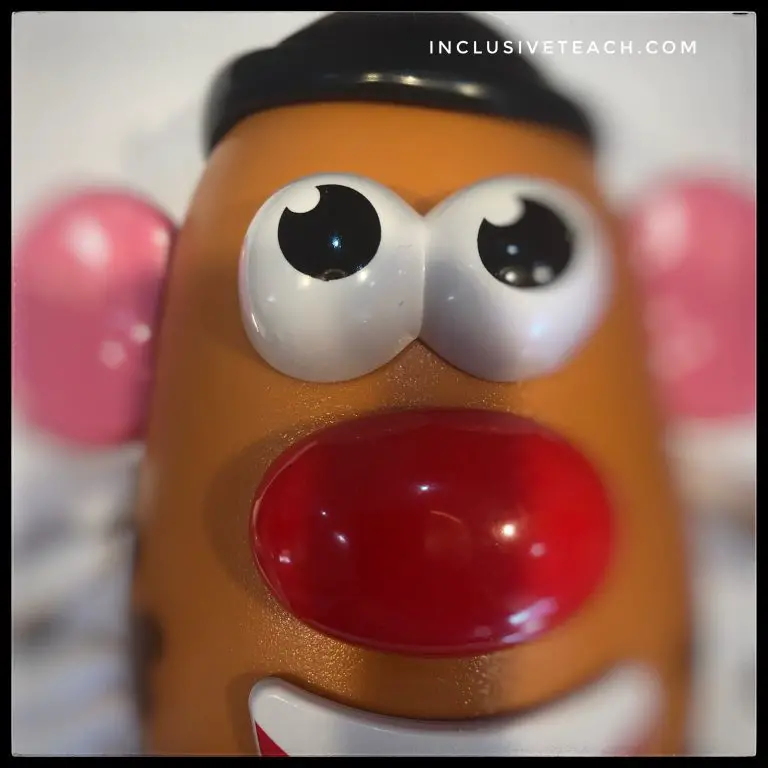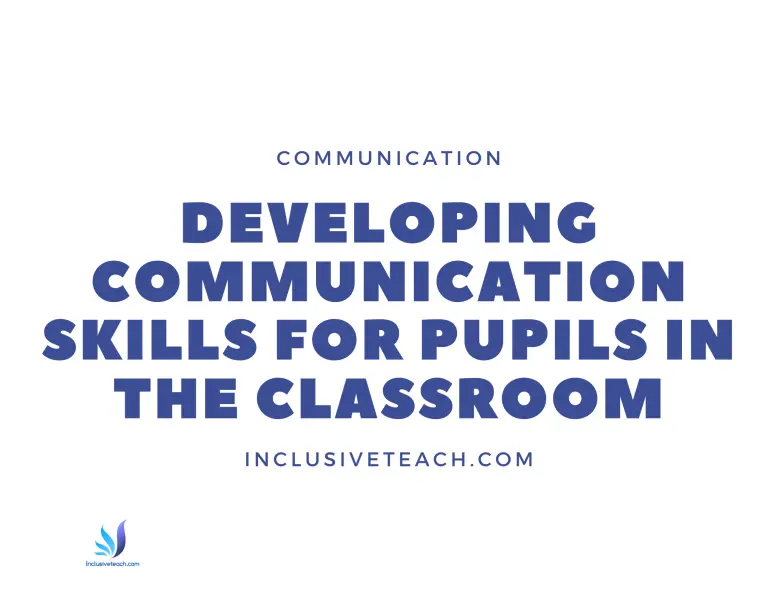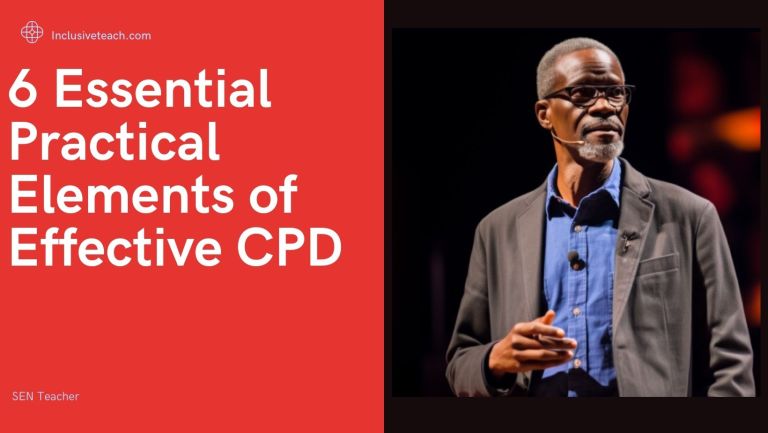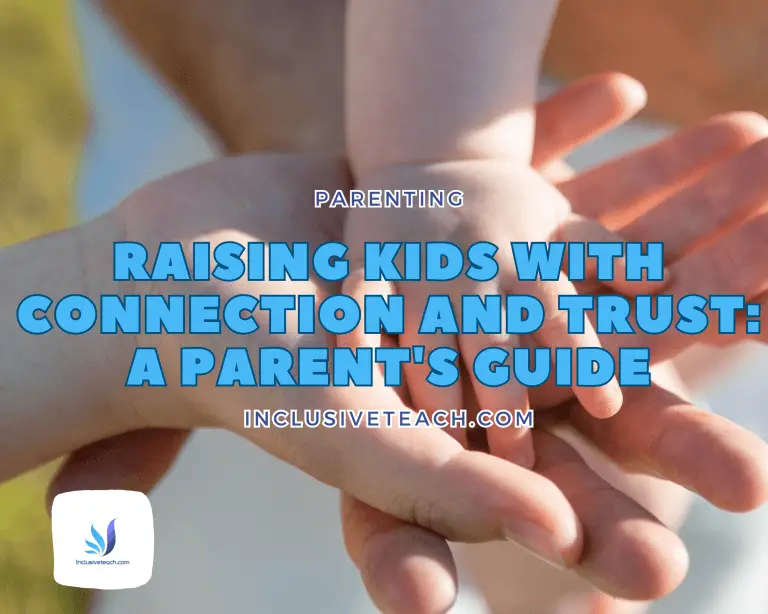80 Why Questions to Use In Lessons/Speech Therapy
The Power of “Why?” Questions in Developing Expressive Language Skills
As a special needs teacher, you need to understand the importance of taking any opportunity to develop expressive language skills in children. These skills empower them to communicate their thoughts, feelings, and ideas effectively. One powerful and effective tool in your arsenal is the “Why?” question. In this article, we’ll explore why “Why?” questions matter, how they support neurodiverse learners, and provide engaging activity ideas for your therapy sessions.
Why “Why?” Questions?
- Promoting Curiosity: “Why?” questions ignite curiosity. They encourage children to explore the world around them, seek answers, and engage in meaningful conversations.
- Building Vocabulary: When children answer “Why?” questions, they learn new words and concepts. These questions expand their vocabulary and enhance language development.
- Critical Thinking: “Why?” questions prompt children to think critically. They help the child analyse situations, make connections, and express their reasoning.
- Expressing Thoughts: By answering “Why?” questions, children practice expressing their thoughts clearly. They learn to organise ideas and communicate effectively further supporting the development of executive functioning skills.
Using “Why?” Questions in Therapy
1. Storytelling Sessions
- Activity Idea: Read a story together. Pause at key points and ask, “Why do you think the character did that?” Encourage children to express their interpretations and predict outcomes.
2. Everyday Scenarios
- Activity Idea: During playtime, create scenarios (e.g., a broken toy, spilled milk). Ask, “Why did this happen?” Children can describe causes and effects.
3. Cooking Adventures
- Activity Idea: Involve children in simple cooking tasks. Ask, “Why do we add flour to the dough?” or “Why does the cake rise?” Discuss ingredients and processes.
4. Nature Walks
- Activity Idea: Explore the outdoors. Point to a bird and ask, “Why do you think it has colourful feathers?” Encourage observation and hypothesis.
5. Problem-Solving Challenges
- Activity Idea: Present a challenge (e.g., building a bridge with blocks). Ask, “Why did your design work?” or “Why did it collapse?” Children explain their solutions.
Neurodiversity Considerations
- Individualised Approach: Recognise that each child’s learning style is unique. Adapt “Why?” questions to their preferences. If symbol support or AAC is required then have these resources ready.
- Visual Supports: Use visuals (pictures, charts) alongside questions. Visual cues aid comprehension.
- Patience and Flexibility: Neurodiverse learners may need extra time to process and respond. Be patient and flexible.
80 Why? Questions for Teachers and Speech Therapists
Why Questions About The Natural World
- Why is the sky blue?
- Why do trees have leaves?
- Why do leaves change colour in autumn?
- Why do plants and trees need water, soil and sunlight?
- Why do we give flowers as gifts?
- Why do birds sing and fly?
- Why do fish live in water?
- Why do butterflies have colourful wings?
- Why do bees make honey?
- Why do clouds look fluffy and white?
Animal Why Questions
- Why do dogs bark and wag their tails?
- Why do cats meow and purr?
- Why do cows say “moo”?
- Why do goats and sheep “baa”?
- Why do lions roar?
- Why do elephants have big floppy ears?
- Why do giraffes have long necks?
- Why do monkeys swing from trees?
- Why do snakes slither along the ground?
- Why do fireflies glow at night?
Questions about The Senses
- Why do things have different colours?
- Why are some things smooth and some are bumpy?
- Why are some things hot and some cold?
- Why are some foods sweet and some sour?
- Why do instruments make music?
- Why does this smell?
- Why can’t we see in the dark?
The Body Why Questions
- Why do we have fingers and toes?
- Why do we yawn when we’re tired?
- Why do we get hungry?
- Why do we cough and sneeze?
- Why do we have skin?
- Why do boys and girls look different?
- Why do we brush our teeth?
- Why do we cut our fingernails and toenails?
- Why do we drink milk to keep our bones strong?
Daily Life
- Why do children go to school?
- Why do adults have jobs?
- Why do we go to sleep at night?
- Why do we play sports and games?
- Why do we read books and stories?
- Why do we listen to music?
- Why do we celebrate holidays and birthdays?
- Why do we ride buses and trains?
- Why do we live in different houses?
- Why do we learn new things each day?
Technology
- Why do cars have wheels and engines?
- Why do boats float on water?
- Why do aeroplanes fly in the sky?
- Why do we use computers?
- Why do we watch television?
- Why do we use phones to call people?
- Why do lights turn on when we flip a switch?
- Why do we use utensils to eat food?
- Why do cars need gas to drive?
- Why do batteries power devices?
Why Questions about Transport
- Why do buses have wheels and seats?
- Why do trains stay on tracks?
- Why do aeroplanes fly in the sky?
- Why do boats float on water?
- Why do cars and trucks need gas?
- Why do bicycles have two wheels?
- Why do skateboards roll fast?
- Why does the train conductor help passengers?
- Why do traffic lights use red for stop?
- Why do road signs have pictures and words?
Friends
- Why do friends play together?
- Why do we share our things with friends?
- Why does it feel good to help our friends?
- Why do friends give each other hugs and high-fives?
- Why do we talk to our friends about how we feel?
- Why do friends go to birthday parties together?
- Why do we say please and thank you to friends?
- Why do we apologise to friends when we hurt their feelings?
- Why do friends cheer us on when we’re scared?
- Why do friends make us feel safe and happy?
These could work well with our Hero Cards (Simple Social Story)
Why Questions about Video Games
- Why do we use controllers to play games?
- Why do we need screens to play video games?
- Why do we collect power-ups like extra lives?
- Why do games have points, levels and boss battles?
- Why do we jump over obstacles in games?
- Why do we watch walkthroughs on YouTube?
- Why do multiplayer games let us team up with friends?
- Why do some games make us happy and some sad?
- Why are save points important in longer games?
- Why do some games teach us about history?
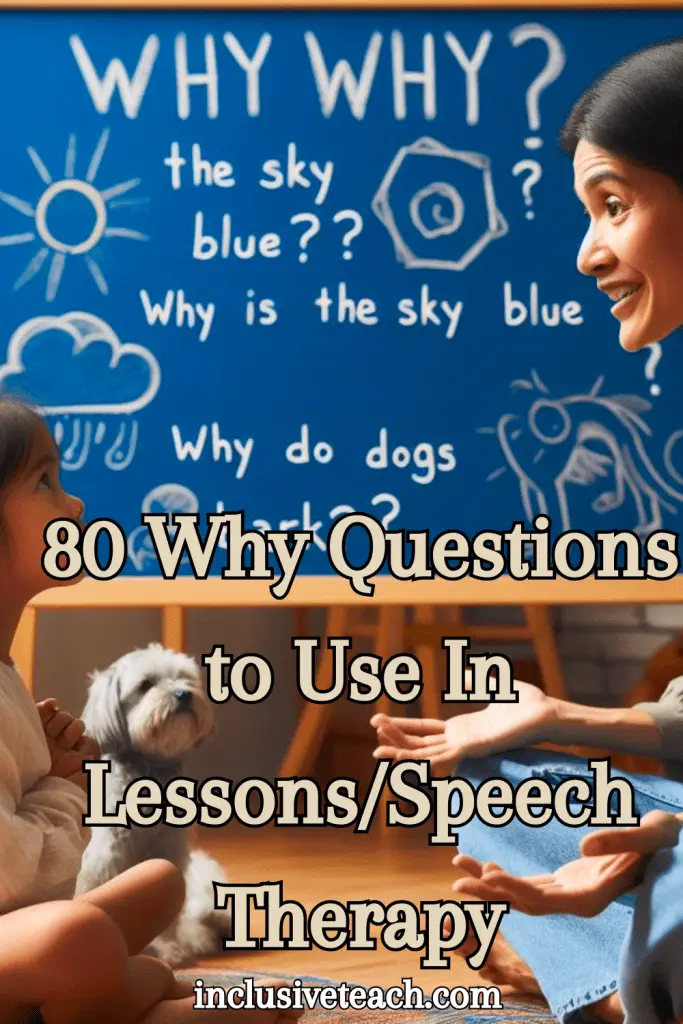
Conclusion
“Why?” questions are bridges to expressive language growth. They empower children to explore, think critically, and communicate confidently. As an SEN teacher, we must at all times embrace neurodiversity, celebrate individuality, and let our curiosity lead the way.


